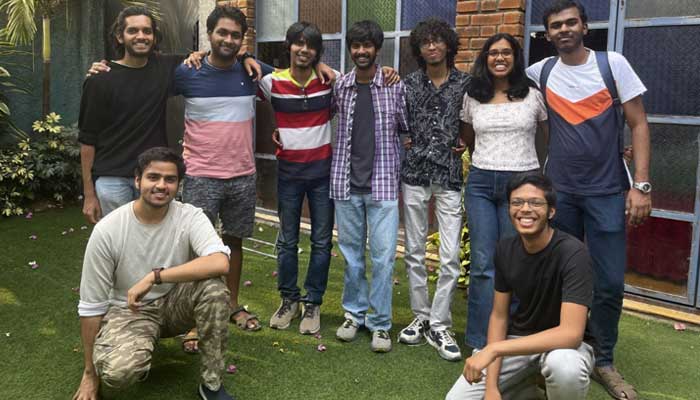Team – Wanderlust consisting Aditya Ranjan Padhi (UG3); Aniketh Parkala (UG3); Gnaneswar Kulindala (UG3); Harsh Kapoor (UG1); Mayank Goel (UG3); Madhan Sai Krishna Chamarthy (UG1); Shreya Bollimuntha (UG3); Shreyas Kumar Sinha (UG3) and Sreyas Saminathan (UG3) participated in the prestigious 2024 CanSat competition, a global event organised by the American Astronautical Society. Team – Wanderlust obtained a global rank of 4, securing an invitation to participate in the further phases of the competition.
The team had earlier submitted their Preliminary Design Review (PDR) document on 2 February, and the online presentation was held on 15 February. In the PDR Team – Wanderlust scored 238 marks out of a total of 240. Based on their score in the preliminary round Team – Wanderlust was awarded a global rank of 4 (US and non-US combined) on 8 March.
Team – Wanderlust is close to finishing the first fully built prototype to test and refine their model. The next deadline is 29 March, when the team will submit their Critical Design Report (CDR) detailing their final design strategy and Mission Operations, including building, testing, launch day operations, and data analysis.
Team – Wanderlust expresses their heartfelt gratitude to their faculty mentor, Prof. Harikumar Kandath, who has been of immense help in procuring components for building and testing the CanSat; and also to the Makers Lab for their generous assistance in building the structural materials for the competition.
The CanSat competition, organised by the American Astronautical Society in collaboration with NASA Goddard, U.S Naval Research Laboratory, Lockheed Martin, Siemens, and others, challenges participants to design and build a satellite the size of a soda can. The goal is to create a CanSat that can ascend to a height of 750 meters and then safely land back on the ground while collecting data through onboard sensors. This hands-on competition allows participants to experience the workflow of a space mission, from conceptual design to integration, testing, actual operation, and post-mission analysis.
Teams from universities and colleges worldwide can register for the competition. The initial design is presented in a Preliminary Design Review (PDR) document, followed by a teleconference presentation to a panel of judges. The top 20 teams from the United States and the top 20 international teams are invited to proceed to the next round.
March 2024

